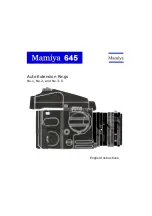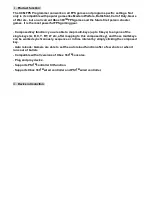
13
WARNING!
The presence of dust between the two visors may produce scratches on both surfaces.
Scratched visors and inner visors may cause reduced visibility and must therefore be replaced.
Regularly check the correct stretching of the inner visor to prevent the same from moving and
scratching both surfaces.
If the helmet visor fogs up and/or condensation forms between the visors, check both for system
correct assembly and stretching.
An excessive and early stretch of the inner visor may result in excessive adherence against visor
surface and/or permanent deformations with subsequent inability to perform following adju-
stments correctly.
The extended use under special weather conditions may reduce system performance and result
in partial fogging and problems of condensation on the inner visor. In this case, remove the inner
visor from the helmet visor and dry it with dry and lukewarm air to restore system efficiency.
Intense sweating /breathing, the use under particular weather conditions (low temperatures,
and/or high humidity and/or sudden changes in temperature or heavy rain) and intense and pro-
longed use may affect the performance of the system and cause the fogging or formation of con-
densation on the inner visor.
In such cases, after using the helmet and to restore the system efficiency, remove the inner visor
from the helmet visor and let it dry with dry and lukewarm air. The same procedure must be
applied to the helmet, in order to dry out humidity in case it has formed up as a consequence of
the conditions described above.
2
PINLOCK
®
INNER VISOR DISASSEMBLY
2.1 Remove the visor equipped with Pinlock
®
inner visor.
2.2 Widen the visor and release the Pinlock
®
inner visor from the pins (Fig. 4).
2.3 Release the visor.
MAINTENANCE AND CLEANING
Remove the Pinlock
®
inner visor from the visor. Using a damp and soft cloth, gently clean it with
neutral liquid soap. Remove the soap under running water.
Dry the inner visor with dry and lukewarm air without wiping it.
To keep the features of the inner visor in good conditions over time, let the helmet dry in a venti-
lated and dry place with the visor open after use.
Keep it away from heat sources and store it in a place away from direct light.
•
VISION PROTECTION SYSTEM (VPS)
The new and exclusive inner Vision Protection System (VPS) is a
- moulded sun screen
with scratch-resistant and fog-resistant treatment.
Using it is very simple and practical: Just lower it to activate it or lift it to remove it from the
field of vision. It is useful in all sorts of situations, both on long journeys out of town and short-
er town trips.
Moreover, the fastening system allows you to assemble and disassemble the sun screen without
any tools to allow ordinary maintenance and cleaning operations.
VPS operation
The VPS mechanism allows activating the sunscreen by simply lowering it until it partially covers
the visor field of vision. In this way, the desired light transmittance reduction is achieved. At any
time, independent of the visor, the VPS can be deactivated with a simple movement and easily
pulled up to restore the normal conditions of visibility and protection guaranteed by the approved
helmet visor.
®
Summary of Contents for N86
Page 71: ...66 ...
Page 72: ...67 EÏÏËvÈÎ ...
Page 79: ...MIN MAX Fig 1 Fig 2 Fig 3 Fig 4 Fig 5 Fig 6 A Fig 6 B A B1 B2 ...
Page 80: ...Fig 8 Fig 7 Fig 9 A Fig 9 B Fig 10 A Fig 10 B Fig 10 C Fig 10 D ...
Page 81: ...ISTR000000089 CART ISTR N86 03 2013 Fig 12 Fig 11 Fig 13 A Fig 13 B Fig 15 A Fig 15 B Fig 14 ...
















































